Hypoxia in Combination with Alcohol, Tobacco, and Energy Drinks Requires Research. Review
The publication is dedicated to hypoxia, which poses a relevant problem for many researchers, as hypoxic conditions can arise in various pathologies. The authors assert that "the mechanisms of adaptation to hypoxia and other adverse environmental factors help both humans and animals adapt to changing natural conditions and technological challenges."
Numerous scientific groups have already studied and continue to study the pathogenesis, prevention, and therapy of hypoxic conditions. However, as the authors note, many aspects of this issue remain unresolved. The aim of their research is to synthesize and analyze the key mechanisms of the body's adaptation to oxygen deficiency to enhance understanding and develop methods to increase resistance to hypoxia.
The study of the mechanisms of adaptation to oxygen deficits, particularly their effects on the brain, opens new opportunities for developing preventive and therapeutic measures against various hypoxic conditions.
"The reduction of oxygen in arterial blood and changes in the oxygen saturation of brain tissues affect cerebral blood flow. However, how hypoxia influences the resilience of cerebral vessels to damage that precedes 'brain catastrophes' remains poorly understood and requires further research," the review states.
It is widely accepted that hypoxic damage to cells occurs due to a lack of oxygen, leading to a decrease in pO2 in cells. This, in turn, disrupts important redox processes necessary for the body's vital functions.
The initial changes in the body during hypoxia are associated with the activation of a number of compensatory reactions aimed at maintaining homeostasis (compensation phase). Within this phase, reactions that adapt the body to short-term acute hypoxia (urgent) and reactions that ensure resilience to less pronounced but prolonged or repeatedly occurring hypoxia (long-term reactions) are distinguished.
"If compensatory reactions prove insufficient and hypoxic factors continue to act, this may lead to structural and functional disorders (decompensation phase)," the publication states.
The literature analysis confirms that adaptive and compensatory mechanisms of the body are activated in hypoxic conditions.
"Nevertheless, the aspects of hypoxia when it is combined with other pathological conditions, such as the consumption of energy drinks, tobacco, or alcohol, are insufficiently studied. Therefore, further research into the mechanisms of adaptation in hypoxia remains one of the pressing tasks," the authors conclude.
Additional information is available at the link.
The photo on the main page is illustrative: philips.fr.
Read also:

Kadyraliev Turganbay Kadyralievich
Kadyraliyev Turganbay Kadyralievich (1945), Doctor of Medical Sciences (1994), Professor (1997)...

Lupinskaya Zinaida Abramovna
Lupinskaya Zinaida Abramovna (1929), Doctor of Medical Sciences (1977), Professor (1979) Jewish....
In Kyrgyzstan, the Issues and Prospects of Using Artificial Intelligence in Healthcare Have Been Studied
A study dedicated to the issues of using artificial intelligence (AI) in medicine has been...

Kuttubaev Omurbek Tashibekovich
Kuttubaev Omurbek Tashibekovich (1956), Doctor of Medical Sciences (2000) Kyrgyz. Born in the...
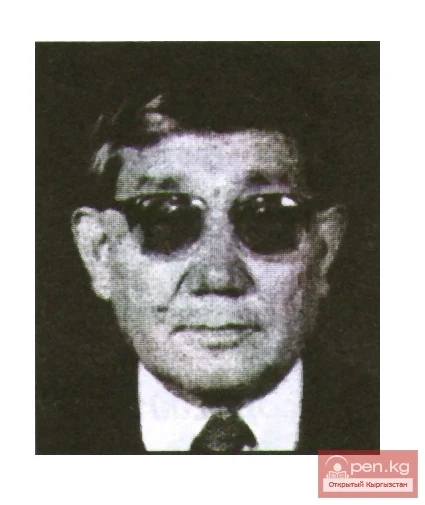
Aisylbek Akmatbekovich Aydaraliev (1941)
Aydaraliev Asylbek Akmatbekovich (1941), Doctor of Medical Sciences (1977), Professor (1988),...
In Kyrgyzstan, the peculiarities of COVID-19 spread among medical workers were studied
A study was conducted in Kyrgyzstan focusing on the epidemiological aspects of COVID-19 infection...

At what altitudes should one expect the development of mountain sickness. Part 2
At altitudes of 1500-2500 m above sea level, there may be slight functional changes in well-being,...
Developing countries will need $310 billion a year to adapt to climate change
In the context of rising global temperatures and the intensifying impacts of climate change, a...

Natalia Nikolaevna Zarechnova
Zarechnova Natalia Nikolaevna (1940), Doctor of Medical Sciences (1996), Professor (1999) Russian....
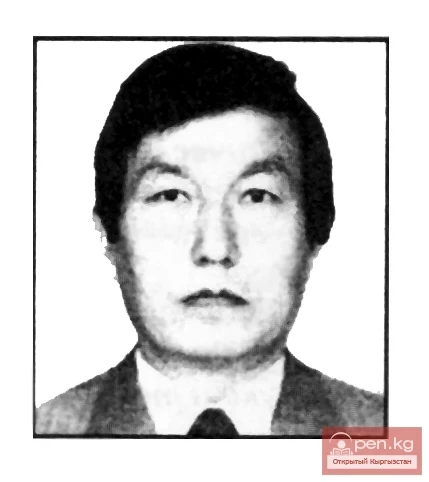
Aitbaev Kubanych Avenovich (1940)
Aitbaev Kubanych Avenovich (1940), Doctor of Medical Sciences (1990), Professor...
Whooping cough in Kyrgyzstan. Over the past 10 years, three outbreaks have been recorded, the latest being the most severe.
A study conducted in Kyrgyzstan analyzed the incidence of whooping cough among children under 14...

Soreko Svyatoslav Iosifovich
Soroko Svyatoslav Iosifovich (1942), Doctor of Medical Sciences (1978), Corresponding Member of...

Mikhail Isaakovich Kitaev
Mikhail Isaakovich Kitaev Doctor of Medical Sciences, Professor, Honored Scientist of the Kyrgyz...

Zurdinov Ashirali Zurdinovich
Zurdinov Ashirali Zurdinovich (1946), Doctor of Medical Sciences (1987), Professor (1990) Kyrgyz....

In Bishkek, an analytical review titled "Aging Population of the Kyrgyz Republic: Challenges and Prospects" was presented.
On October 31, an analytical report titled "Aging Population of Kyrgyzstan: Challenges and...

Zakir Dzheenbek
Zakirov Dzheenbek (1940), Doctor of Medical Sciences (1997), Professor (2001) Kyrgyz. Born in the...

Lidia Georgievna Filatova
Filatova Lydia Georgievna (1919), Doctor of Biological Sciences (1961), Professor (1961) Russian....

Balikin Mikhail Vasilyevich (1951)
Balykin Mikhail Vasilievich (1951), Doctor of Biological Sciences (1995). Russian. Born in Frunze....

Aynura Orozbaeva: Kyrgyzstan is preparing an active longevity program until 2030
At a recent conference dedicated to issues of active longevity in Kyrgyzstan, Deputy Minister of...
Central Asian countries launched the "One Health" program
In Central Asian countries, the "One Health" program has been initiated, as reported by...
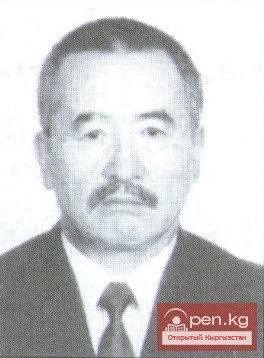
Zurdinov Ashirali Zurdinovich
Zurdinov Ashirali Zurdinovich Doctor of Medical Sciences, Professor, Honored Scientist of the...

Karasaeva Altynai Khuzeinovna
Karasaeva Altynai Khuzeinovna (1939), Doctor of Medical Sciences (1985), Professor (1993) Kyrgyz....
Increase in excise taxes on tobacco, alcohol, and sugary drinks. Opinion of the Ministry of Health
The Ministry of Health of Kyrgyzstan has expressed its position regarding the increase in excise...
Sharp pressure drops may be linked to accelerated brain aging, -study
A study conducted by specialists from the University of Southern California has shown that even...

Three teenagers who left the adaptation center are being sought in Bishkek.
According to information provided by the press service of the Main Department of Internal Affairs...
In Kyrgyzstan, Science Day is Celebrated
On November 10, the Chairman of the Cabinet of Ministers of Kyrgyzstan, Adylbek Kasymaliev,...

UN: Developing countries will need $310 billion a year to adapt to the impacts of climate change
Photo UNICEF/S.Andriananten Climate change is leading to an increase in the frequency of droughts...
"Archive Photo". Kyrgyz Baïs in the city of Tokmok, 1934
In collaboration with the Central State Archive of Film, Photo, and Sound Documents (CSAFPSD KR),...
One in Five Children in Kyrgyzstan Has Elevated Blood Lead Levels - Analysis
The National Institute of Public Health (NIOZ) presented a report on the results of a study...
Kyrgyzstan is Rapidly Aging: The System is Not Ready for the "Gray Future"
In Kyrgyzstan, the aging population process goes beyond ordinary statistics and becomes a serious...

Ananiy Grigoryevich Rachkov
Ananiy Grigoryevich Rachkov (1947), Doctor of Medical Sciences (1990), Professor (1990) Russian....
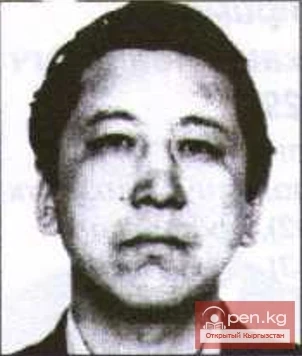
Tulekeyev Toktogazy Moldalievich
Tulekeyev Toktogazy Moldalievich (1951), Doctor of Medical Sciences (1995), Professor (1997)...
In Kyrgyzstan, about 2,500 deaths per year are related to alcohol
According to the Ministry of Health, alcohol is a catalyst for more than 200 different diseases and...

Daniyarov Sanjarbek Bakirovich
Daniyarov Sanjarbek Bakirovich Doctor of Medical Sciences, Professor, Academician of the National...
What Affects Pregnancy, Childbirth, and Children's Health. Data That Makes You Scared
Recently, a round table was held in Bishkek on the topic "The Impact of Climate Change on...

In the Talas Region, a laboratory research management system for tuberculosis diagnosis is being implemented.
The USAID project "Quality Healthcare" conducted an assessment visit to the Talas region...
Kyrgyzstan proposed to UNESCO to declare September 22 as International Day of Nomadic Heritage
At the meeting of the Commission on Social and Human Sciences during the 43rd session of the UNESCO...
Kyrgyzstan Will Face an Accelerated Aging Process in the Coming Decades
In the capital of Kyrgyzstan, Bishkek, today, October 31, a presentation of the analytical review...
Study: The Number of Cancer Cases Related to Obesity is Rising
A recent global study indicates an increase in cancer cases among youth worldwide, with obesity...

Lyamtsov Viktor Trofimovich
Lyamtsov Viktor Trofimovich (1929) Doctor of Medical Sciences (1973), Professor (1976) Russian....

Sadyr Japarov: "Kyrgyzstan today especially needs youth with deep knowledge"
Today, October 31, President Sadyr Japarov emphasized the importance of youth possessing...
What is Needed for the Development of High-Tech Medical Care in Kyrgyzstan? Opinion of Professor I. Pershukov
Professor and Doctor of Medical Sciences, as well as Doctor of Philosophy (PhD) Igor Pershukov...
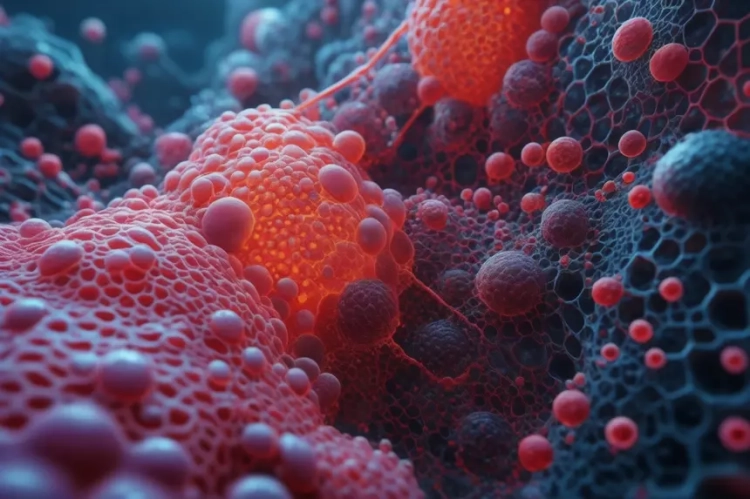
New AI from DeepMind Helps in the Search for Cancer Treatment
The C2S-Scale 27B model, one of the most advanced and scalable AI systems, is based on the Gemma...

Why Does the Republic Need Tourism?
It is profitable, of course, profitable. But why does such a lucrative sector not yield the...